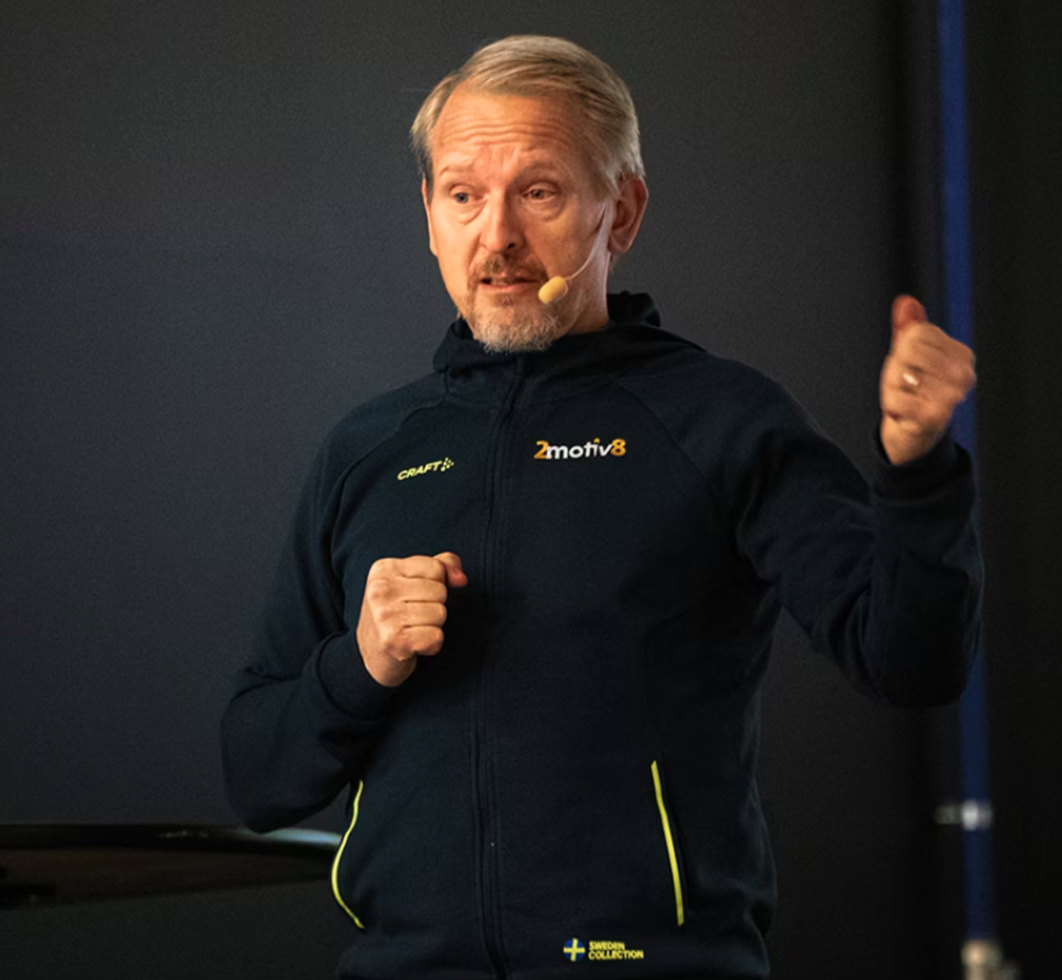
Johan Fallby
Qualified Sport Psychologist, Senior Change Management Consultant at Co-Ideation and CEO at 2motiv8.
Previously serving as a Sports Psychologist at Hammarby Fotboll and specialising in Sports Psychology at Halmstad University, has also contributed their expertise as a Sports Psychologist at F.C. Copenhagen, Djurgårdens IF, and the Swedish National Association. With a rich background in the field, they bring a wealth of experience in enhancing mental performance and well-being in sports contexts across various organizations.
As an athlete, Johan was a former professional table tennis player, top 100 in the world and in the national team of Sweden.
How would you define a parent’s role within the youth sports environment?
Parents have an important role in youth sports. First of all they influence their children in their sport behaviour. That is, if parents have an active lifestyle, doing exercise or sports with their kid. There is an increased chance that the child will adopt an active lifestyle as well. That has an immense impact on future health behaviours and the relation to an active lifestyle.
On the other hand there are also evidence that the parental role is important in developing future elite athletes. The parent that can find their role within the sport environment and match their social, psychological and financial support to the demands of the child will probably give her or him an advantage in the long run.
What are the benefits of embracing parental involvement in youth sports?
I believe that the parents should be educated by the sports organization on what their role contains. What kind of demands they put on the parents, but also what rights and important tasks parents can help with. I don’t believe that parents should be on the sports ground inside the sport, but they shall be nearby to support in all sorts of ways. And to define and find that role there has to be a dialogue between the sports organization and the parent. The dialogue should as well be exactly what it means. A dialogue. I found out that many parents are just being told what to do, and then they do it without understanding why. So the sports organization should invite coaches, staff, parents for a dialogue where they define different roles, demands, and tasks. What are a coach supposed to do? The parent? Athletes? And from there it is easier to define the roles and also have demands on how things are supposed to be done.
It sounds like a huge amount of work for some I think, but it is actually quite easy to do it. As soon you get acceptance from all groups involved, then you start to inforce the roles and define behaviours that are acceptable or even desirable within the different roles.
How have you as a coach/club attempted to increase parental involvement?
We tried what I explained in question 3. It was a very exciting task to do, and I believe we have succeeded a most of the clubs where we have tried it. The communication between different roles in the sport environment suddenly flourished and people began to understand both why, and also how they were supposed to support athletes in the environment.
We have also tried to set up small meetings with parents before matches and tournaments. Lets say every third game in the little league we gather parents 30 minutes before kick-off to give them information, education and to ask questions to them. For some particular reason parents want to see the games and therefore they are at the venue anyway. That give us a good opportunity to reinforce what we want parents to know or do. We can also explain what has happened the last couple of weeks, what the focus on training has been, how we are going to play the game today and other things. Parents can also ask questions if there is anything that is unclear.
It has actually been a success. We also changed the mandatory “parents meeting” at the start of the season, to a “parent education”. There we work through the roles in and around the athletes and define how we are going to co-operate during the season. Practical information can these days easily be distributed through other channels, so why spend valuable time on that when we have the parents gathered?
What challenges have you faced by attempting to increase the level of parental involvement?
There are several challenges depending on what you mean by “increasing”. The biggest issue is that parents don’t know what sports is, and they have a lot of biases and lack of knowledge on how “talent development” should be carried out. In a group of parents there will almost always be a few that make a lot of noise and try to control the environment. These parents need to be educated and also develop self-awareness. I don´t always want the parents to be more involved, however I want them to understand and be curious on what we do in the club with their kids. As soon as they know, it is easier to increase their involvement, or decrease it. The best thing is if the parent talks about the same things as we do in the club, and also in a similar way. So the child doesn’t get to many different messages from adults.
The largest challenge is often when the child starts to increase the interest in the sport, somewhere around 7-10 years, and also when the “career” starts to get professional and lots of new interests comes in (agents for example), around 15-17.
Have you seen any difference in players when parental involvement is embraced not neglected and/or ignored?
I have not only worked in football (soccer), so my experience is also from lots of other sports. Generally there are many parents destroying (or decreasing) their child’s chances of getting professional, however, there are of course many fantastic parents out there. When the support matches the child’s needs, there are almost always positive effects in many ways. Self-determined motivation and enjoyment increases easier, which is the most important thing. You almost always see a decrease in anxiety, especially during games, but also in training. Learning increases through better concentration, and … you can go on. There are individual patterns of course, but the positive effects of a well balanced support from parents is very very important.
Again, there are so many positive effects by involving parents in the sport environment if you do it in a controlled and systematic way. This is especially evident early in children’s contact with sport. If the parents doesn’t support exercise and sport behaviours, then the risk of the child stopping is increased by large numbers.
What advice would you give coaches that are unsure about increasing parental involvement within youth sports?
Bring them in to the sport environment as much as possible, but do it in a controlled way. And by saying that I don’t mean that parents should pick teams or interfere in training. I mean that the role should be defined and explained in co-operation. The club should also educate as much as possible what they are doing and why. Everything to help parents understand what a great programme you actually have and why it is so great.
For those parents unaware of their influential role, what advice would you give parents?
Educate yourself and become more self-aware on your behaviours. If you are good at Swedish read my book J (Do it better yourself if you can!), otherwise I know that there are excellent literature in English as well. Education is important for you as a parent to understand the sport and how a modern training regime in sports looks like today. It will also give you opportunity to examine the environment where your child is active in. If the sport environment is doing less good or old fashioned coaching, you can be able to discuss and help the environment to become better. I think that parents actually have the right to tell a club that “this training is not good enough according to modern knowledge on how to coach and train kids”. We have to remember that less educated and self-aware parents are not the only “problem”, there are a lot of coaches out there that don’t know what they are doing with their athletes. However, that is another story.
I always end up with more education, self-awareness, co-operation and words like that. I think that all sports environments should value them and do the most out of it.
Thank you to Martin for taking the time to complete the following interview questions.
Twitter: Johan Fallby | LinkedIn – Johan Fallby









